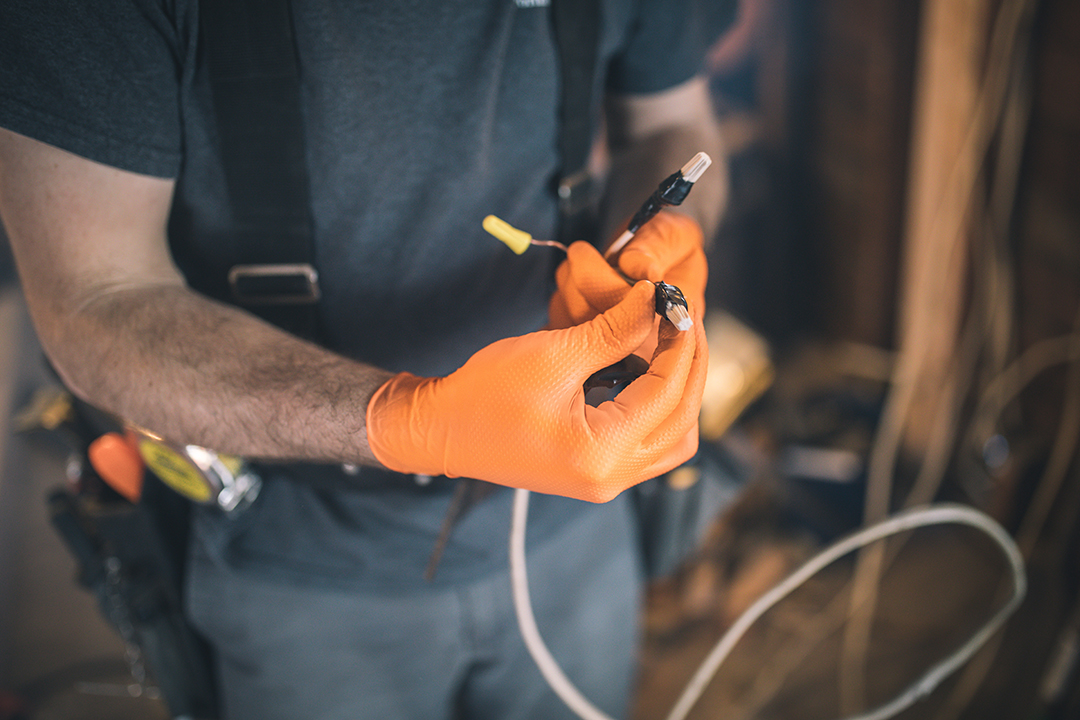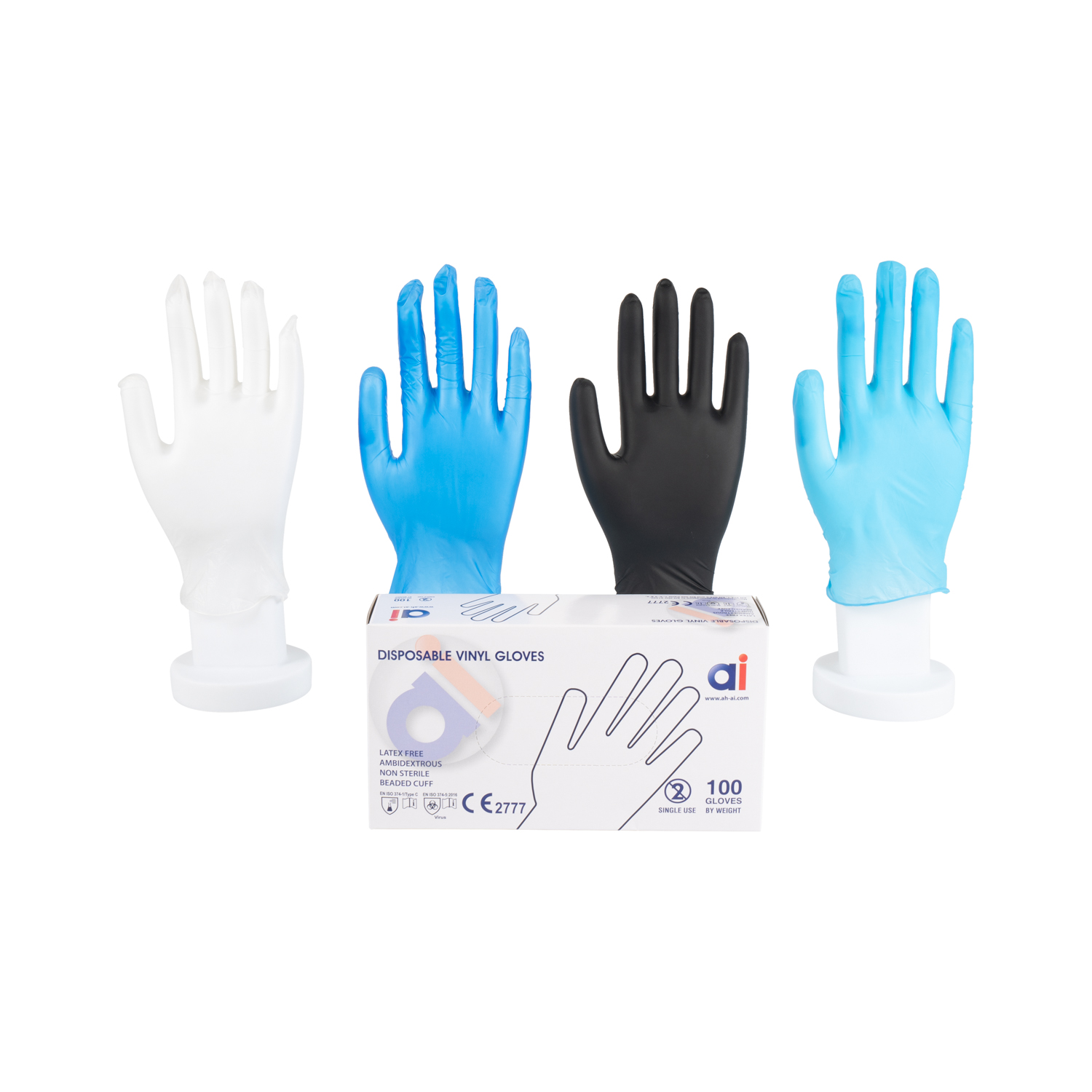
Whether workers are dealing with pesticides or working with animals, gloves are an absolute must-have for any farm or agriculture business. Help prevent bacteria and harmful chemicals from coming in contact with animals or worker’s skin with the help of AIC’s quality gloves.
Pesticides
Pesticides such as herbicides and other products can be harmful to workers and cause skin irritation if exposed to bare skin. They are used to help kill weeds that may harm crops while also leaving crops intact. Nitrile gloves are generally used with these products due to their tough and chemical resistant properties.
Livestock
To prevent the spread of contamination or illness among animals, different gloves should be used for each animal. This will require workers to change gloves, wash hands, and grab a new pair after working with each animal. Vinyl gloves are the ideal choice as their design allows for the easy donning and removing of gloves.
Gardening and Crops
Fertilizers can be used for local gardens or crops and can take many forms from chemicals to manure. Our Glove Chemical Resistance Chart defines latex, vinyl, and nitrile gloves as all having “excellent” resistance to fertilizers.
Weed killers are also ideal for controlling weeds in local gardens. Latex, vinyl, and nitrile gloves also have “excellent” resistance to weed killers.
In general, all three glove types have “excellent” resistance to garden chemicals.
Tractors and Equipment
Workers on farms or in agriculture may complete mechanical tasks such as fixing tractors and other farm equipment. They may come into contact with gasoline, brake fluid, or diesel fluid in their tasks. Gloves should be used when there is a risk of coming in contact with these substances to prevent contamination and skin irritation from working with substances bare handed. Latex and vinyl gloves offer “fair” resistance to brake fluid and nitrile gloves offer “excellent” resistance. For gasoline, latex offers “poor” resistance, vinyl “fair”, and nitrile “excellent”. With diesel fuel, latex and vinyl offer “poor” resistance while nitrile gloves offer “excellent” resistance.



